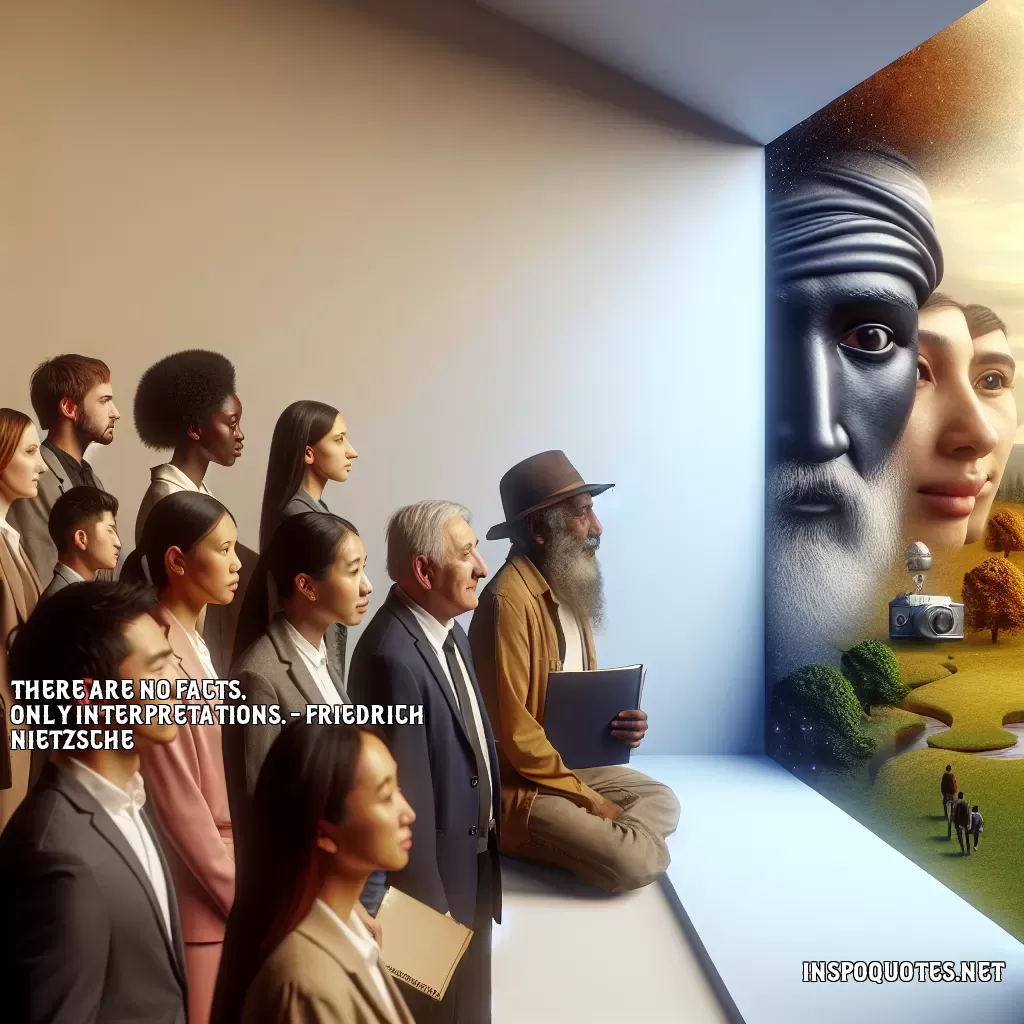
There are no facts, only interpretations. - Friedrich Nietzsche
Author: Friedrich Nietzsche
👁️ 2 views

There are no facts, only interpretations. - Friedrich Nietzsche
👁️ 2 views
Friedrich Nietzsche’s assertion, "There are no facts, only interpretations," challenges the conventional understanding of reality and knowledge. At the heart of this statement is Nietzsche’s philosophical stance on perspectivism, which suggests that what we often consider as objective facts are actually subject to subjective interpretation. Nietzsche argues that our knowledge of the world is filtered through our perceptions, experiences, and cultural contexts, which means that our understanding is inherently interpretative rather than purely factual. In saying there are no facts, Nietzsche is not necessarily denying the physical reality that exists around us, but rather highlighting that our access to this reality is mediated by our individual and collective frameworks. Each person interprets the world through these frameworks, which are shaped by numerous factors including language, history, societal norms, and personal experiences. Thus, two individuals might perceive the exact same event in radically different ways based on their interpretative lenses. Nietzsche’s quote encourages a deeper examination of how knowledge is constructed and challenges us to question the certainty with which we hold our beliefs. It suggests that what is often presented as an absolute truth is instead a version of truth filtered through interpretation. This perspective invites open-mindedness and a willingness to consider multiple viewpoints, acknowledging that our understanding of reality is inherently complex and multifaceted. By embracing this concept, Nietzsche encourages a form of pluralism where diverse interpretations coexist, fostering a richer and more nuanced engagement with the world.
Quote By: Friedrich Nietzsche
Friedrich Nietzsche (1844-1900) was a German philosopher, cultural critic, and poet, renowned for his profound exploration of morality, religion, and the human condition. His provocative ideas, including the concepts of the "Übermensch" and the "will to power," challenged conventional beliefs and laid the groundwork for existentialism and postmodernism. Nietzsche's influential works, such as "Thus Spoke Zarathustra" and "Beyond Good and Evil," continue to inspire and provoke thought in various fields, including philosophy, literature, and psychology.
Bio added on: 2025-02-13 14:46:06